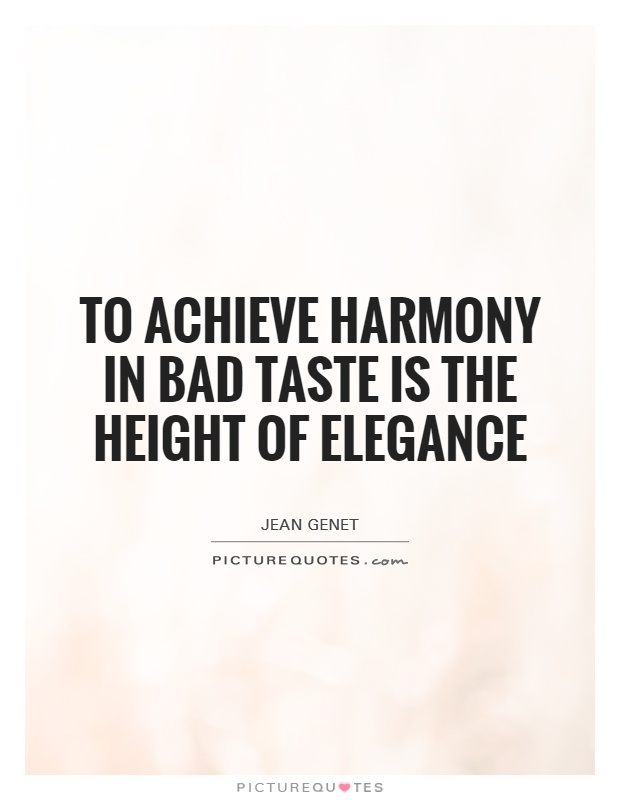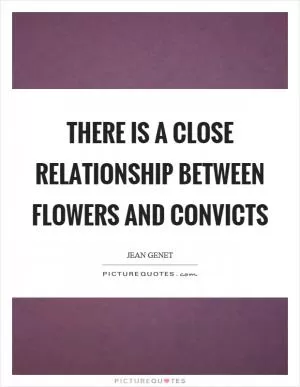To achieve harmony in bad taste is the height of elegance

To achieve harmony in bad taste is the height of elegance
Jean Genet, the controversial French writer and playwright, was known for his provocative and subversive works that often pushed the boundaries of conventional taste. His writings explored themes of sexuality, criminality, and social outcasts, challenging societal norms and conventions. Genet's work was often considered shocking and offensive, but at the same time, it was also praised for its raw honesty and unapologetic exploration of the darker aspects of human nature.The quote "To achieve harmony in bad taste is the height of elegance" can be seen as a reflection of Genet's own artistic philosophy. Genet believed that true art should not be constrained by societal norms or expectations, but should instead be a raw and unfiltered expression of the artist's innermost thoughts and emotions. In this sense, achieving harmony in bad taste can be seen as a rejection of conventional notions of beauty and propriety, in favor of a more authentic and unapologetic form of expression.
Genet's works often featured characters who were marginalized and oppressed by society, such as criminals, prostitutes, and social outcasts. By portraying these characters in a sympathetic light, Genet challenged his audience to confront their own prejudices and preconceptions, forcing them to reconsider their ideas of what is acceptable or tasteful. In this way, Genet's work can be seen as a form of artistic rebellion against the status quo, a refusal to conform to societal expectations of what is considered "elegant" or "tasteful".
Despite the controversial nature of his work, Genet's writing was also praised for its poetic beauty and lyrical prose. His ability to find elegance in the most unlikely of places, to create harmony out of chaos, is a testament to his skill as a writer and his unique artistic vision. In this sense, Genet's work can be seen as a celebration of the beauty that can be found in the most unexpected and unconventional places, a reminder that true elegance lies not in conformity, but in the courage to embrace the darker and more challenging aspects of the human experience.












 Friendship Quotes
Friendship Quotes Love Quotes
Love Quotes Life Quotes
Life Quotes Funny Quotes
Funny Quotes Motivational Quotes
Motivational Quotes Inspirational Quotes
Inspirational Quotes